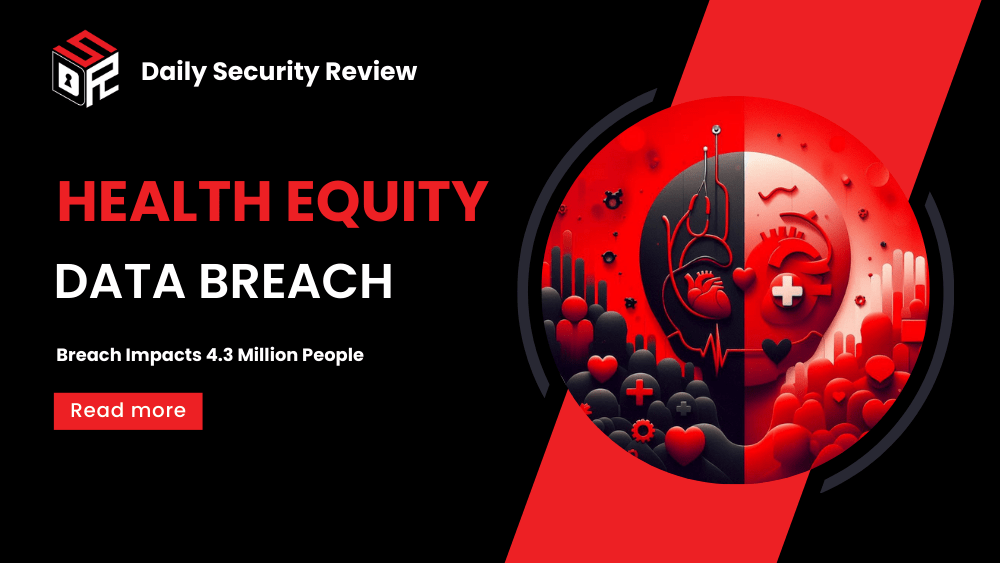What happened in the HealthEquity data breach?
HealthEquity, one of the largest HSA custodians in the US, disclosed a cybersecurity incident on July 2nd, 2024 through an SEC form 8-K filing.
An internal investigation revealed that threat actors had stolen members’ sensitive health and personal details by exploiting compromised credentials of a HealthEquity partner on March 9th, 2024.
This unauthorized access and potential disclosure of protected data from an external unstructured repository was only confirmed by HealthEquity on June 26th after validating the stolen information.
What information was involved in the breach?
The HealthEquity data breach varied for each individual but involved valuable personal details like full names, home addresses, phone numbers, employer information, Social Security Numbers, dependent information, and in some cases, payment card information excluding card numbers.
The breached unstructured data repository contained protected health information and personally identifiable information and has since been secured after terminating unauthorized access sessions and blocking related IP addresses.
HealthEquity determined through their investigation that the data breach impacted a massive 4.3 million individuals who were customers or members of the company.
“We discovered some unauthorized access to and potential disclosure of protected health information and/or personally identifiable information stored in an unstructured data repository outside our core systems, on June 26, 2024, after validating the data, we unfortunately determined that some of your personal information was involved.” Reads the data breach notice to be distributed to impacted individuals on August 9, 2024.
What steps did HealthEquity take after the breach?
To prevent further unauthorized access, HealthEquity implemented a global password reset for the compromised vendor account used to access the external database.
Notifications about the HealthEquity data breach are to be sent out to the 4.3 million impacted individuals by August 9th, 2024, along with a complimentary 2-year credit monitoring and identity theft protection service through Equifax.
Those affected are also advised to remain vigilant by reviewing statements for suspicious activity and keeping their HealthEquity profile information up to date.
Conclusion
The HealthEquity data breach underscores the importance of implementing strong security practices to protect sensitive customer data.
While no criminal group has claimed responsibility for this attack yet and the stolen information hasn’t been leaked publicly, data breaches of this scale can have serious financial and personal consequences for affected individuals.
Organizations like HealthEquity must continue bolstering their cyber defenses and oversight of third-party vendors to avoid such intrusions and safeguard user privacy.









